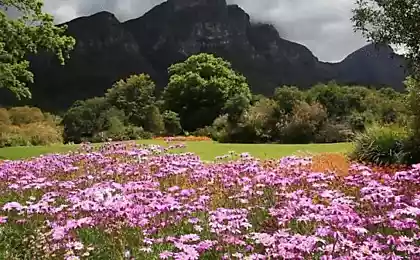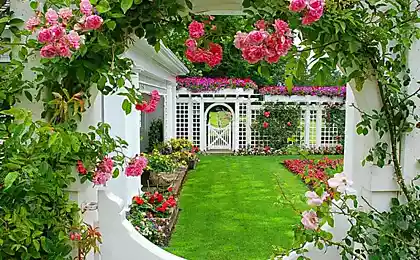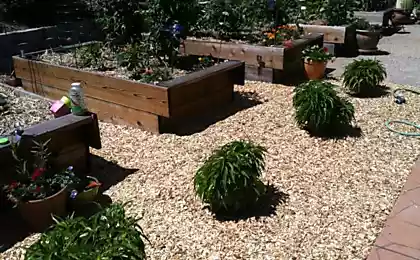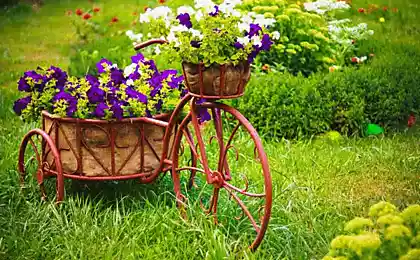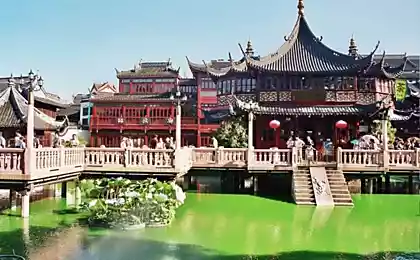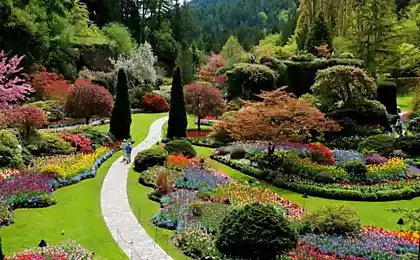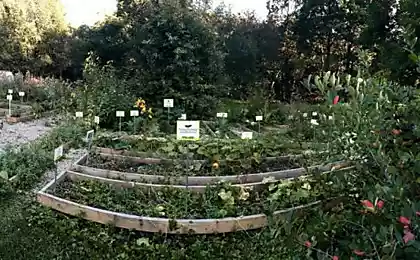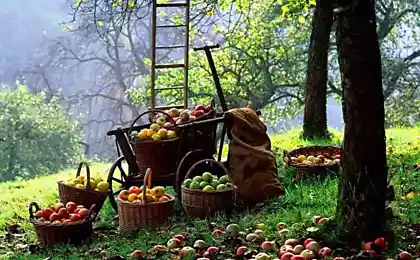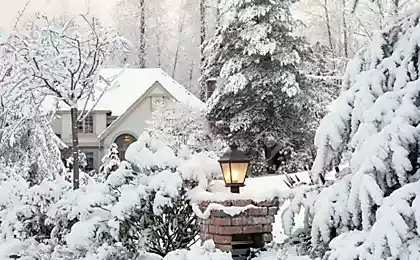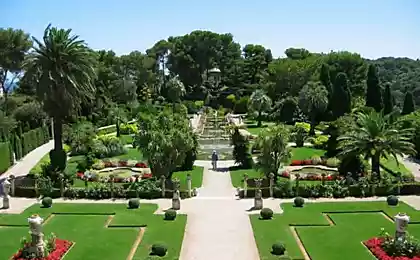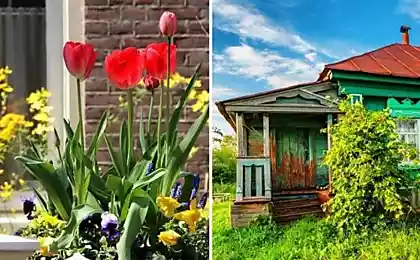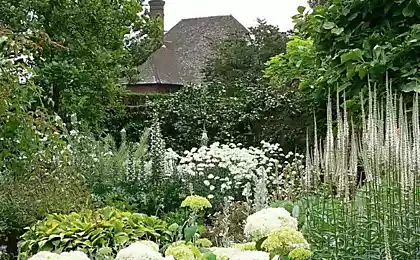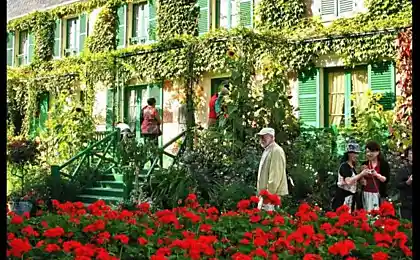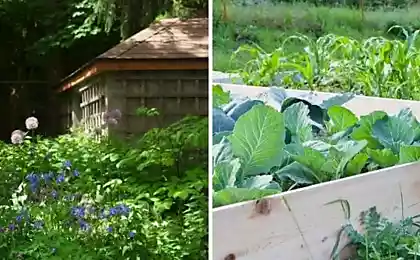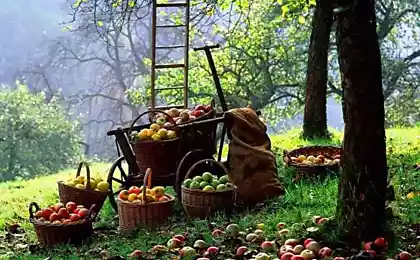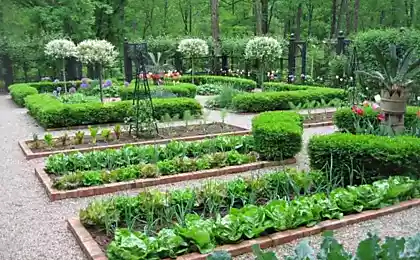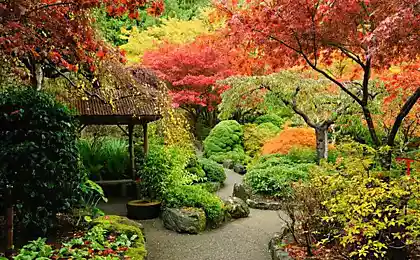554
How to learn vegetable gardening from nature
When the end of the heaviest work on the site — all of beds dug up, the first weeding is carried out, — gardeners breathe a sigh of relief. What remains? The joy of the completed in work time, first greens on the table and fatigue. It's time to wonder why nature, working on large areas, not tired. Than nature farming differs from gardening?
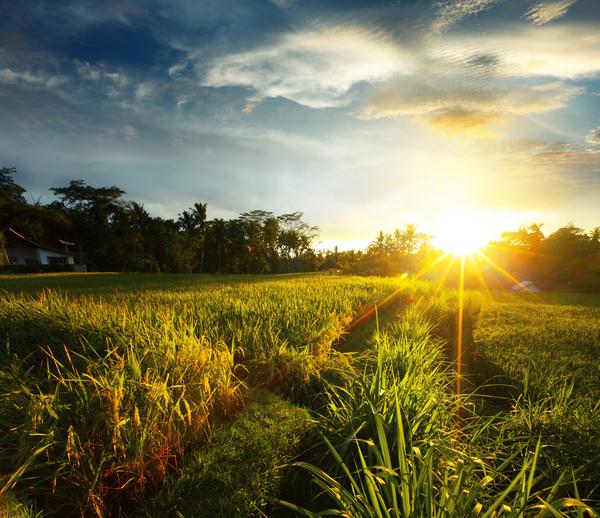
What makes a gardener, but does not printable farmer became mandatory spring cleaning of the territory from the leaves and other plant debris, digging the soil, planting seedlings and vegetable plants in deep holes, weeding, watering and harvesting. And in-between — create a compost pile, the distribution of purchased tons of manure to improve soil fertility, control of pests and harmful weeds.
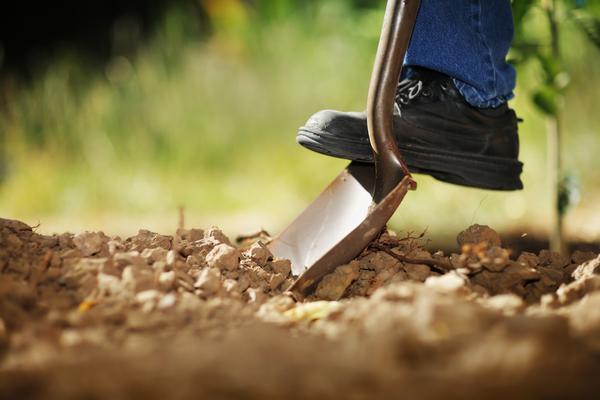
None of these works, nature does not! But there was no year without harvest! Seed grows so much and they are stored so wisely, that will last them for years to restore vegetation and food animals.
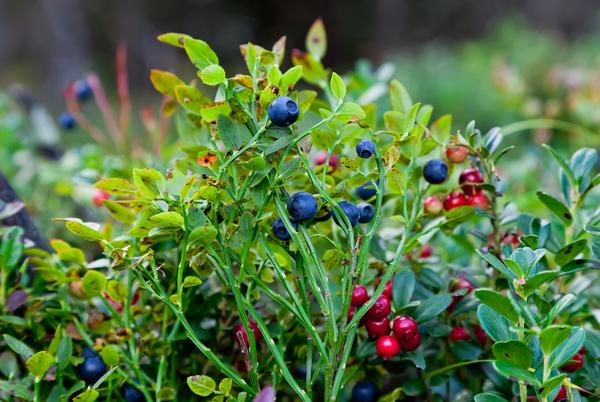
Right, wyborow every summer resident has the right to choose to study agriculture in nature or to continue to work in familiar ways. You decide...
This work is difficult, not every gardener-Amateur forces in the fall and in the spring dig up the whole plot! A abandoned autumn digging, but in every manual it is argued that this helps to get rid of pests. But the Colorado potato beetle continues to destroy potato planting, and meadow moth eats everything up to the black earth on your own schedule.
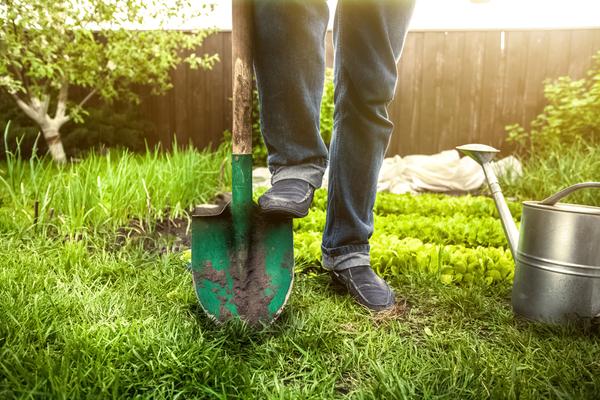
Why the weeding takes nutrients from the soil? Why naked black cleaned black earth on a bed harmful to the plants?
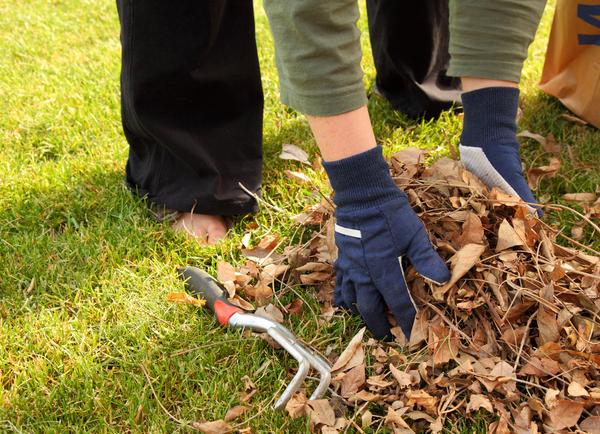
When people have changed the natural principles of farming in their own garden Few people know that the manure in the soil began to make, when the craftsmen of ancient times were able to create the yoke, learned how to use a tractive force of animals. The first cabs were the bulls with a yoke and a plow.
Then came up with a harness for the horse is turned to "figure out" a few centuries later. With a horse on the field is much more manageable than with the bulls. Although there were problems – while decorating the hooves of horses hooves could not, it was not possible to harvest hay in the far plots, and to bring him to the barn. So manure was not enough!
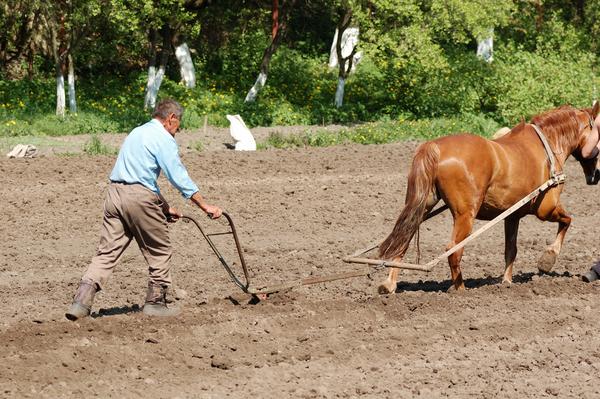
In the tenth century learned to Shoe horses, had the first transport, which used the power of the animal, not the person. Horse labor was in demand. But still used a scraper, wheeled transport was not, it was time to create a hub.
A growing number of animals, manure it was necessary where-that to attach. Added to fertilize the soil. Since the Middle ages, the farmer pushes the waste of WC animals in the soil. That is only some five hundred years-seven hundred. In the nineteenth century plow horses. Not really scatter the manure on the field to carry a horse saving it for plowing. Because the compost was almost at random from the piles of manure and grass torn from the beds.
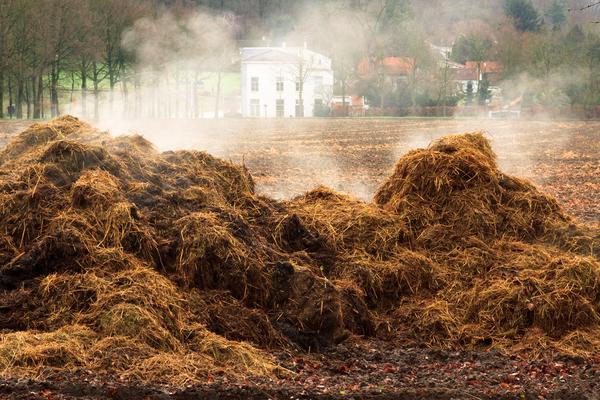
How much water can be brought from the river in buckets on a yoke, or to get out of the well for irrigation of cabbage? Very limited quantity! Poured water under the root, spend carefully so the plant is able to endure till the arrival of rains.
Now there is drip irrigation, sprinkler irrigation, plastic pipe lying between the rows at each site. Devices that help produce artificial rain, the stores in bulk.
So gradually, gradually gardener and a farmer changed the ways of farming. Modern farmers it seems that the described technology is eternal, has always existed. Because the attitude is formed, as to the truth.
The principles of natural farming
The gardener may try to work differently, to leave someone invented the rules on just one or two hradecka. To begin processing a tiny piece of land on the basis of the rules by which nature lives. Two years later to see the results of the experiment — you see, the principles on which economy nature, seem so interesting to me that two unusual the garden beds will be added to all the others.
What are the rules?
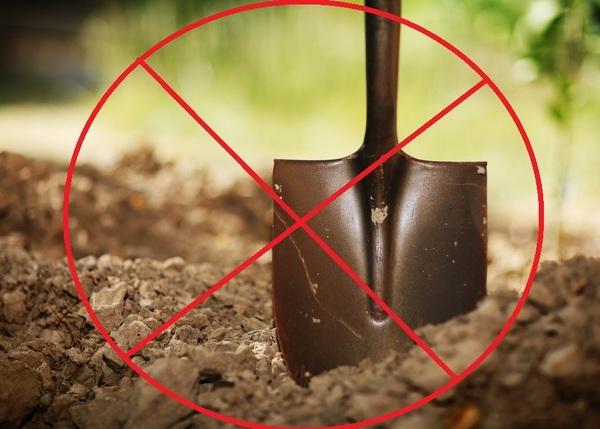
Why not have all of the above to do? Everything happens for a reason. On them will speak in the series "Learn horticulture and gardening from nature".
My own interest in this topic was not accidental – my vegetable beds "suddenly" stopped giving a decent harvest. The analysis showed where the problems. It was necessary to destroy their causes, and it was necessary to find acceptable ways. So was the farming system on private land, which will be discussed.
Soon vacationers will start to dig the beds, prepare the soil for the winter, to destroy the pests. Why it is impossible to do it will tell a new article.
It's time for falling leaves, time of harvesting of potato and tomato foliage. What to do with garden waste? To burn or just to make the plot? This will be discussed in another article.
Why you should not apply mineral fertilisers to the soil, as the soil receives all the necessary substances in the winter – a topic of another article.
Author: VeraTyukaeva (Faith)
Source: www.7dach.ru

What makes a gardener, but does not printable farmer became mandatory spring cleaning of the territory from the leaves and other plant debris, digging the soil, planting seedlings and vegetable plants in deep holes, weeding, watering and harvesting. And in-between — create a compost pile, the distribution of purchased tons of manure to improve soil fertility, control of pests and harmful weeds.

None of these works, nature does not! But there was no year without harvest! Seed grows so much and they are stored so wisely, that will last them for years to restore vegetation and food animals.

Right, wyborow every summer resident has the right to choose to study agriculture in nature or to continue to work in familiar ways. You decide...
This work is difficult, not every gardener-Amateur forces in the fall and in the spring dig up the whole plot! A abandoned autumn digging, but in every manual it is argued that this helps to get rid of pests. But the Colorado potato beetle continues to destroy potato planting, and meadow moth eats everything up to the black earth on your own schedule.

- To baste or not to baste?
Why the weeding takes nutrients from the soil? Why naked black cleaned black earth on a bed harmful to the plants?
- To clean or not to clean plant debris from the site and the surrounding area?

- Monocultures in the beds or combined landing?
- To dive or to protect the root?
When people have changed the natural principles of farming in their own garden Few people know that the manure in the soil began to make, when the craftsmen of ancient times were able to create the yoke, learned how to use a tractive force of animals. The first cabs were the bulls with a yoke and a plow.
Then came up with a harness for the horse is turned to "figure out" a few centuries later. With a horse on the field is much more manageable than with the bulls. Although there were problems – while decorating the hooves of horses hooves could not, it was not possible to harvest hay in the far plots, and to bring him to the barn. So manure was not enough!

In the tenth century learned to Shoe horses, had the first transport, which used the power of the animal, not the person. Horse labor was in demand. But still used a scraper, wheeled transport was not, it was time to create a hub.
A growing number of animals, manure it was necessary where-that to attach. Added to fertilize the soil. Since the Middle ages, the farmer pushes the waste of WC animals in the soil. That is only some five hundred years-seven hundred. In the nineteenth century plow horses. Not really scatter the manure on the field to carry a horse saving it for plowing. Because the compost was almost at random from the piles of manure and grass torn from the beds.

How much water can be brought from the river in buckets on a yoke, or to get out of the well for irrigation of cabbage? Very limited quantity! Poured water under the root, spend carefully so the plant is able to endure till the arrival of rains.
Now there is drip irrigation, sprinkler irrigation, plastic pipe lying between the rows at each site. Devices that help produce artificial rain, the stores in bulk.
So gradually, gradually gardener and a farmer changed the ways of farming. Modern farmers it seems that the described technology is eternal, has always existed. Because the attitude is formed, as to the truth.
The principles of natural farming
The gardener may try to work differently, to leave someone invented the rules on just one or two hradecka. To begin processing a tiny piece of land on the basis of the rules by which nature lives. Two years later to see the results of the experiment — you see, the principles on which economy nature, seem so interesting to me that two unusual the garden beds will be added to all the others.
What are the rules?
- not to dig
- not clear from the garden and garden debris
- not to burn it
- not to do the compost
- do not use manure in the usual way,
- not to destroy the roots of the seedlings
- in a word, not to interfere with the plants!

Why not have all of the above to do? Everything happens for a reason. On them will speak in the series "Learn horticulture and gardening from nature".
My own interest in this topic was not accidental – my vegetable beds "suddenly" stopped giving a decent harvest. The analysis showed where the problems. It was necessary to destroy their causes, and it was necessary to find acceptable ways. So was the farming system on private land, which will be discussed.
Soon vacationers will start to dig the beds, prepare the soil for the winter, to destroy the pests. Why it is impossible to do it will tell a new article.
It's time for falling leaves, time of harvesting of potato and tomato foliage. What to do with garden waste? To burn or just to make the plot? This will be discussed in another article.
Why you should not apply mineral fertilisers to the soil, as the soil receives all the necessary substances in the winter – a topic of another article.
Author: VeraTyukaeva (Faith)
Source: www.7dach.ru

